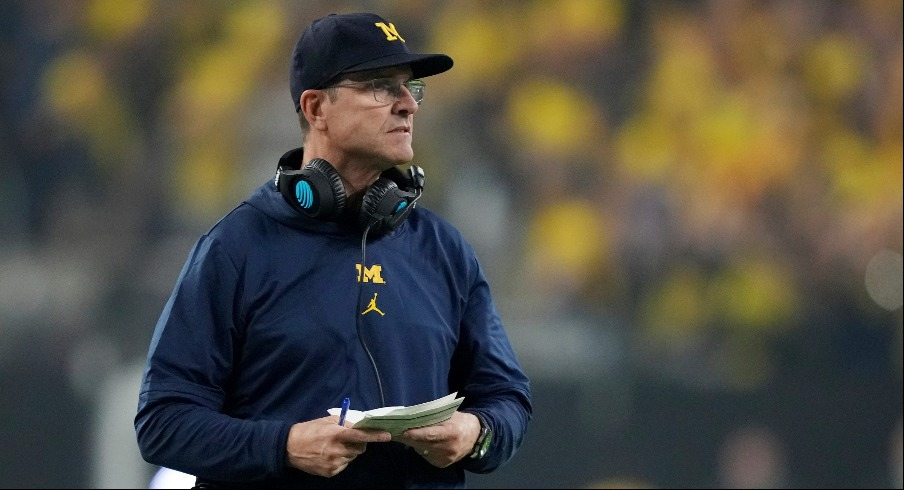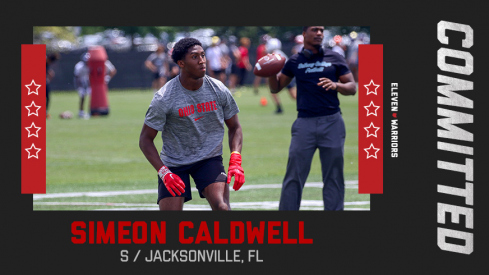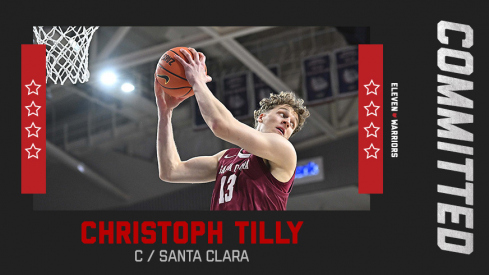Former Santa Clara standout Christoph Tilly, a top-10 center in the transfer portal, commits to Ohio State.
The NCAA has issued penalties to the Michigan football program and former head coach Jim Harbaugh. These penalties are unrelated to the Connor Stalions case.
On Wednesday, the NCAA Division I Committee on Infractions panel determined Harbaugh "violated recruiting and inducement rules, engaged in unethical conduct, failed to promote an atmosphere of compliance and violated head coach responsibility obligations."
The committee handed Harbaugh a four-year show-cause order as a result of his actions. Should Harbaugh return to college football within the next four years, he would be fully suspended for his first year of employment.
While Michigan and five former or current staffers reached an agreement concerning "recruiting and coaching activities by noncoaching staff members that occurred within the football program," Harbaugh was not part of the agreement. His case was resolved separately, the NCAA release stated.
Today, the committee issued its decision resolving that portion of the case. The underlying violations in this case are centered around impermissible recruiting contacts and inducements during the COVID-19 dead period. Throughout the investigation, Harbaugh denied his involvement in the violations, which were overwhelmingly supported by the record. Harbaugh also refused to participate in a hearing before the committee.
Harbaugh's violations of the COVID-19 recruiting dead period are Level II violations, but his unethical conduct and failure to cooperate with the membership's infractions process — specifically, his provision of false or misleading information — is a Level I violation.Head coaches are presumed responsible for violations that occur within their programs. Due to Harbaugh's personal involvement in the violations and his failure to monitor his staff, he could not rebut the presumption, resulting in a violation of head coach responsibility rules.
The panel noted that Harbaugh's intentional disregard for NCAA legislation and unethical conduct amplified the severity of the case and prompted the panel to classify Harbaugh's case as Level I-Aggravated, with penalties to include a four-year show-cause order. Subsumed in the show-cause order is a one-season suspension for Harbaugh.
During the show-cause order, Harbaugh would be barred from all athletically related activities, including team travel, practice, video study, recruiting and team meetings, at any NCAA school that employed him. Additionally, if hired during the show-cause order, Harbaugh would be suspended for 100 percent of the first season of employment. The results of those contests during Harbaugh's suspension would not count toward his career coaching record.
The NCAA has yet to issue penalties to the Michigan football program or Harbaugh for the Stalions case.
On Sunday, ESPN reported details from an NCAA notice of allegations draft that Harbaugh, current Michigan head coach Sherrone Moore and former Wolverine staffers Chris Partridge and Denard Robinson committed Level 1 violations related to the Stalions case. The draft states both Harbaugh and Moore could face show-cause penalties for their involvement, while Moore could also face a suspension.
In a press conference for the Los Angeles Chargers on Monday, Harbaugh denied knowledge of Stalions' sign-stealing scheme in response to the reported NCAA notice of allegations draft.
"Never lie. Never cheat. Never steal. I was raised with that lesson. I have raised my family on that lesson. I have preached that lesson to the teams that I've coached," Harbaugh said. "No one's perfect. If you stumble, you apologize and make it right. Today, I do not apologize. I did not participate, was not aware nor complicit in those said allegations. So for (me), it's back to work and attacking with an enthusiasm unknown to mankind."


